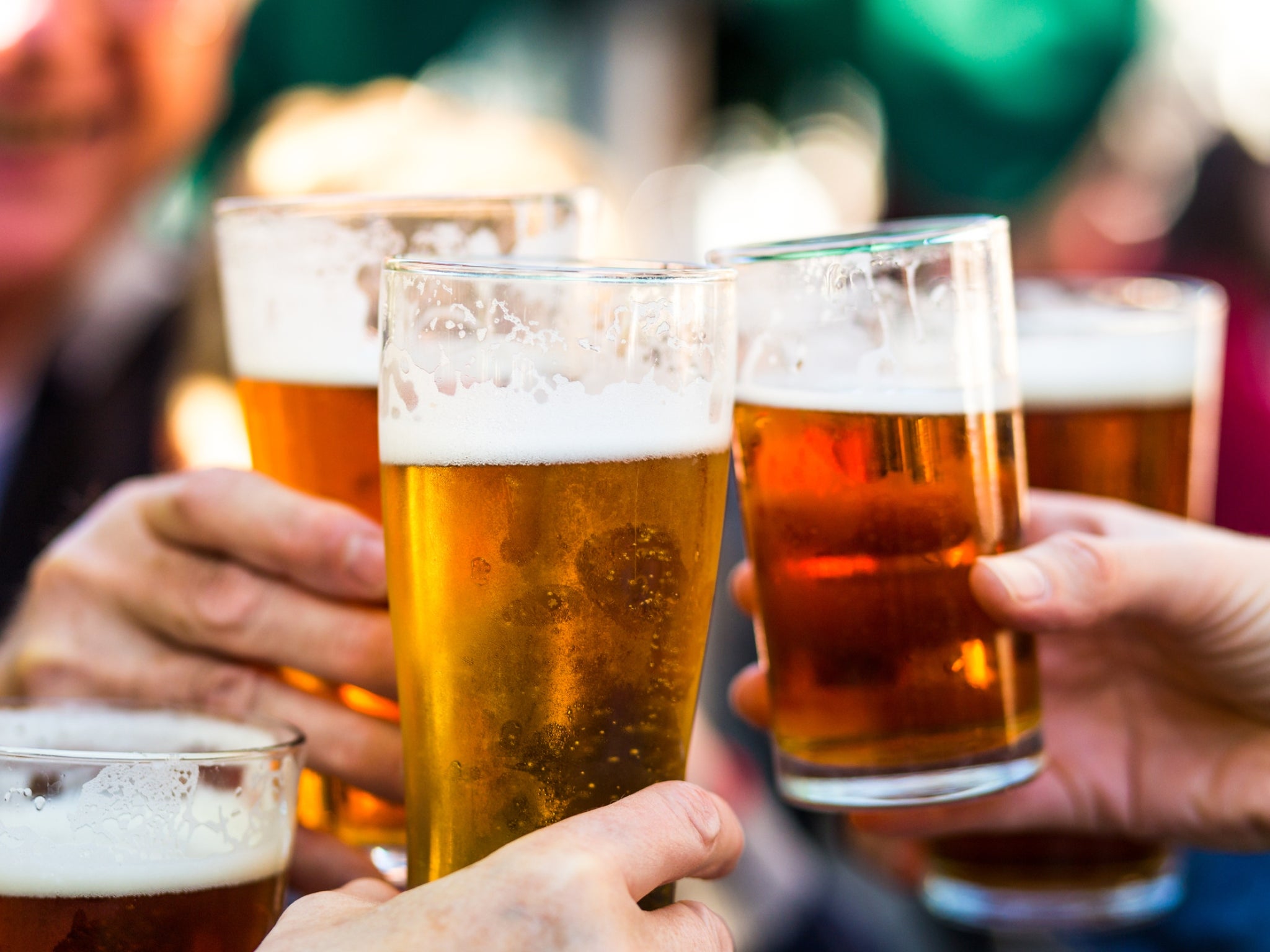Binge drinking ‘could trigger potentially fatal heart rhythm disorder’, research suggests
Drinking too much alcohol could lead to atrial fibrillation which could result in a stroke

Your support helps us to tell the story
From reproductive rights to climate change to Big Tech, The Independent is on the ground when the story is developing. Whether it's investigating the financials of Elon Musk's pro-Trump PAC or producing our latest documentary, 'The A Word', which shines a light on the American women fighting for reproductive rights, we know how important it is to parse out the facts from the messaging.
At such a critical moment in US history, we need reporters on the ground. Your donation allows us to keep sending journalists to speak to both sides of the story.
The Independent is trusted by Americans across the entire political spectrum. And unlike many other quality news outlets, we choose not to lock Americans out of our reporting and analysis with paywalls. We believe quality journalism should be available to everyone, paid for by those who can afford it.
Your support makes all the difference.Regularly drinking too much alcohol or binge drinking could lead to a potentially fatal heart rhythm disorder, new research has found.
The study, published in the journal Nature Cardiovascular Research, says those who drink heavily could be at risk of atrial fibrillation (AF), a heart rhythm that often results in a stroke.
The study is the first to show an association between increased drinking and hospital visits for AF in a large group.
It is also the first study to link acute alcohol consumption with an increased incidence of new-onset AF in previously undiagnosed people.
“Our new data suggest that acute alcohol consumption in the general population is associated with a higher risk of an episode of atrial fibrillation, including a higher risk for a first episode of atrial fibrillation among individuals never previously diagnosed with the condition,” study senior author Professor Gregory Marcus of the University of California, San Francisco said.
“Worldwide, alcohol is the most popularly consumed drug, and it now is clear that alcohol consumption is an important risk factor for atrial fibrillation."
The initial study looked at 100 AF patients who were about to undergo surgery for the condition and identified physiological changes to the heart triggered by elevated blood alcohol.
While the researchers observed no AF episodes during the short study, the alcohol-induced changes they observed in the heart had previously been associated with elevated risk of AF.
A subsequent study of acute alcohol consumption in a different set of 100 patients diagnosed with AF found that episodes of AF were associated with self-reported drinking shortly beforehand.
The researchers also looked into the days of the year when people were likely to consume more alcohol. To find this, they analysed data from more than 36,000 people from over 59 countries who used a commercially available, Bluetooth-enabled breathalyser device.
Using over 1.2 million alcohol measurements, the researchers determined that people are more likely to drink on bank holidays like New Year’s Day and Christmas or during large sporting events like the FIFA World Cup or Super Bowl Sunday.
Prof Marcus said: “We wanted to test the hypothesis that during the dates and events we first identified as being associated with elevated alcohol consumption in the breathalyser users, we would also see more hospital visits for atrial fibrillation.
“This would imply that there is a nearly immediate relationship between excess alcohol consumption and more atrial fibrillation within the population.”
The researchers then reviewed California hospital emergency room visits from 1 January, 2005 to 30 December, 2015 and identified visits coded for a diagnosis AF. They compared the weeks associated with greater alcohol consumption to all other weeks of the year to see if there were more AF visits on days when people are known to drink more.
They found that there was a "significantly elevated" number of hospital visits for AF when all those empirically identified events were compared to all other days of the year.
Researchers have also found the greatest association between acute alcohol consumption and hospital visits for AF is among those over age 65.
Prof Marcus added: “This may be kind of a wake-up call for those individuals who have an identifiable trigger for their atrial fibrillation, who we might presume would be more highly motivated to avoid alcohol consumption and subsequently to experience a lowering of their atrial fibrillation risk."
Additional reporting by SWNS.
Join our commenting forum
Join thought-provoking conversations, follow other Independent readers and see their replies
Comments